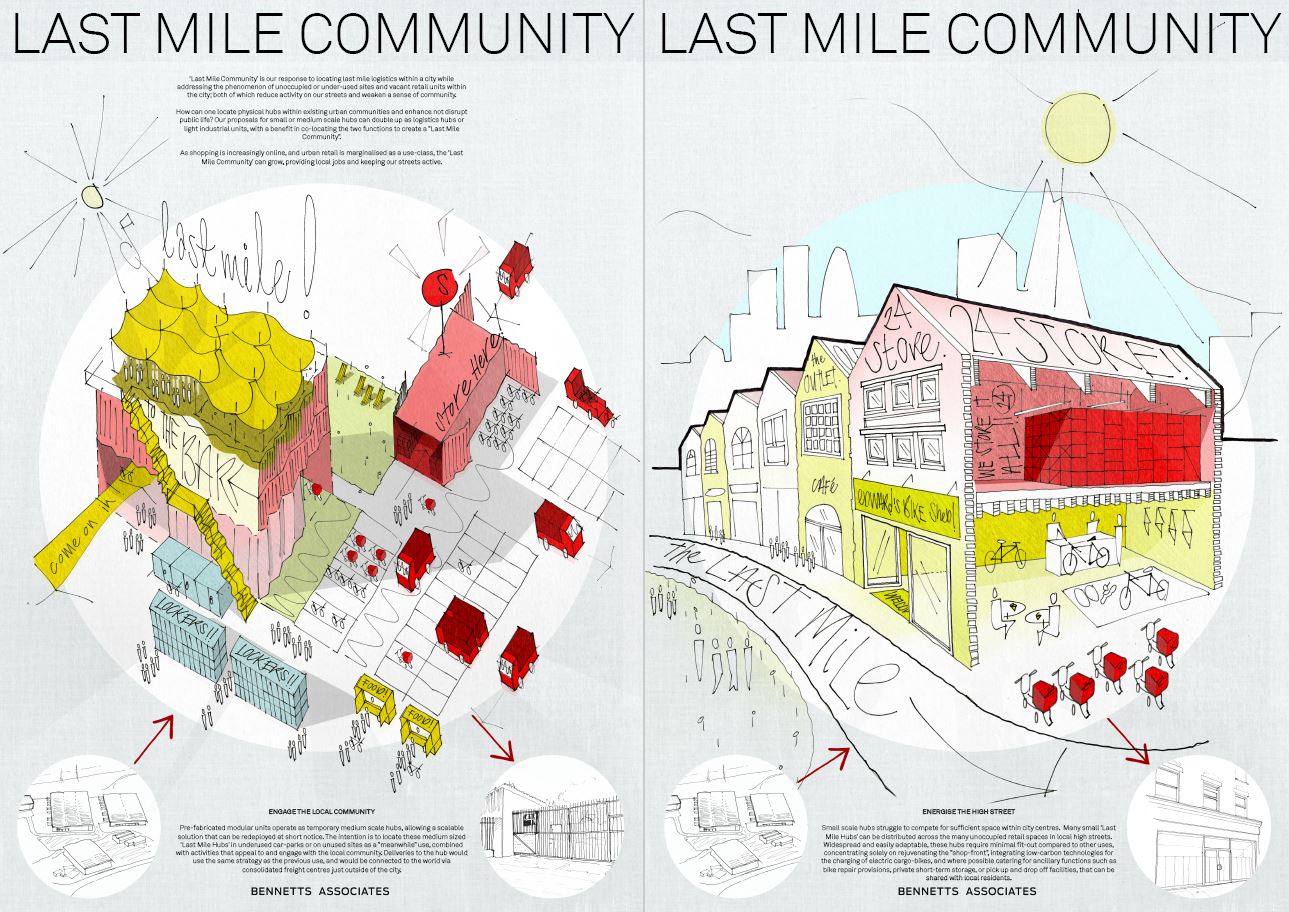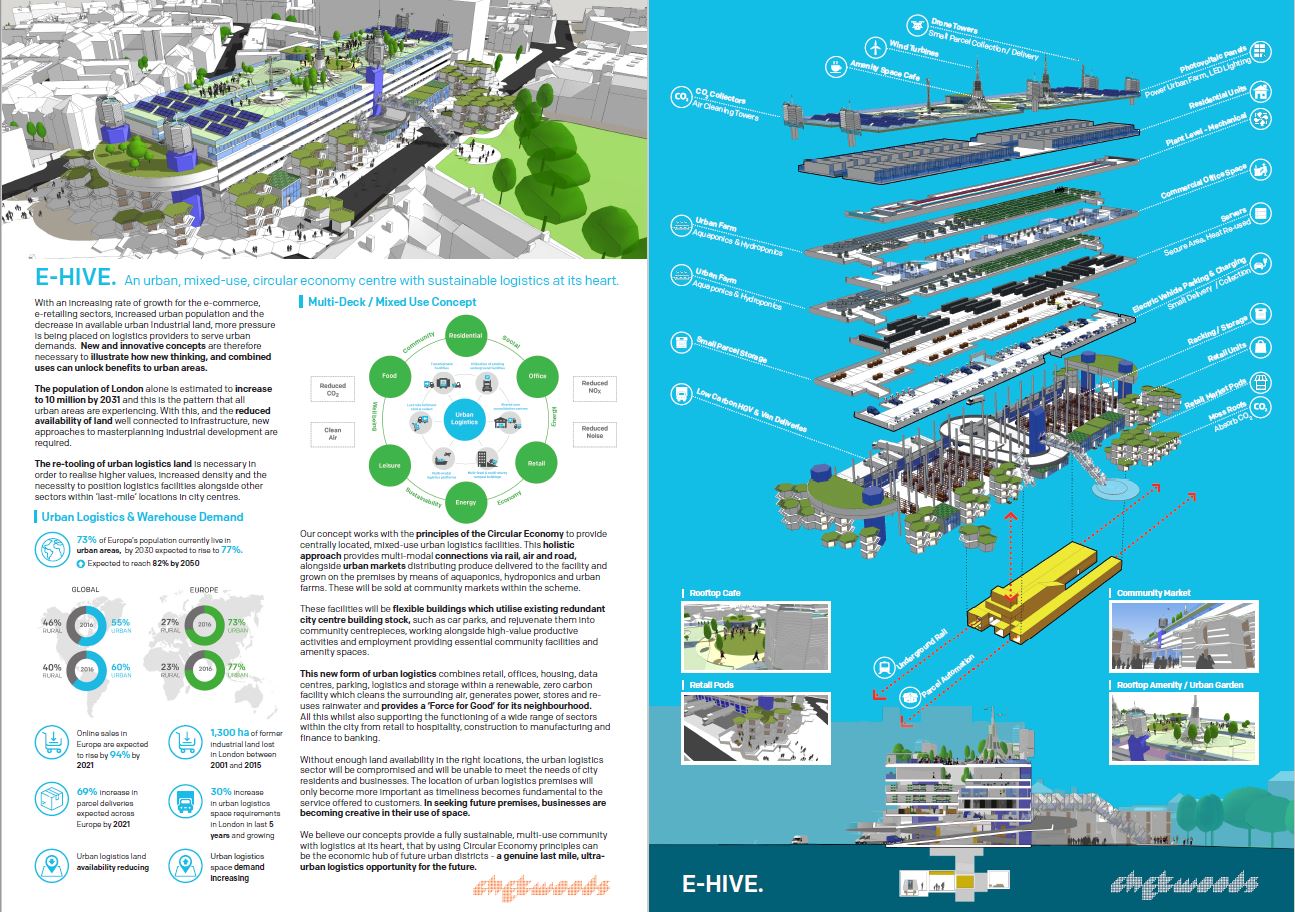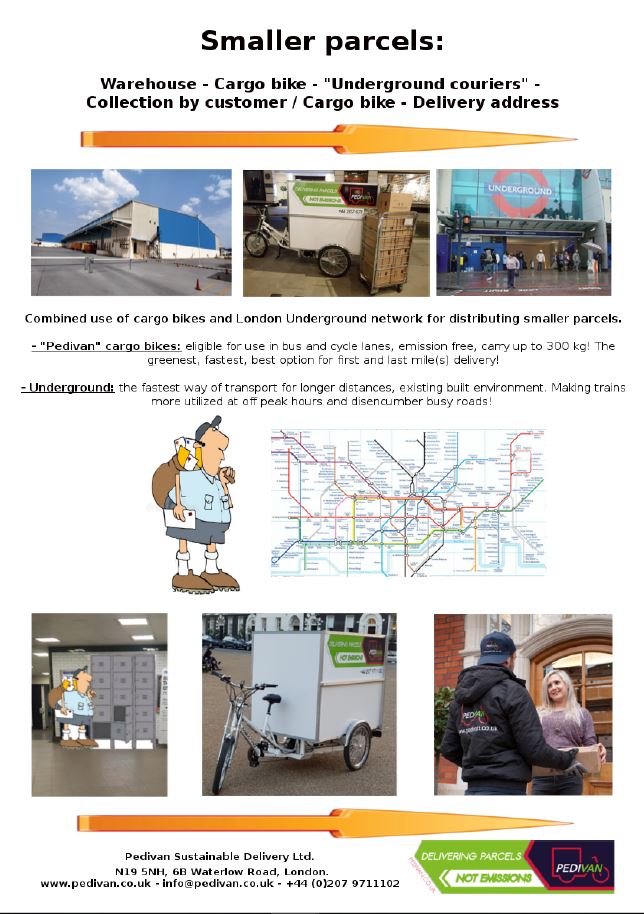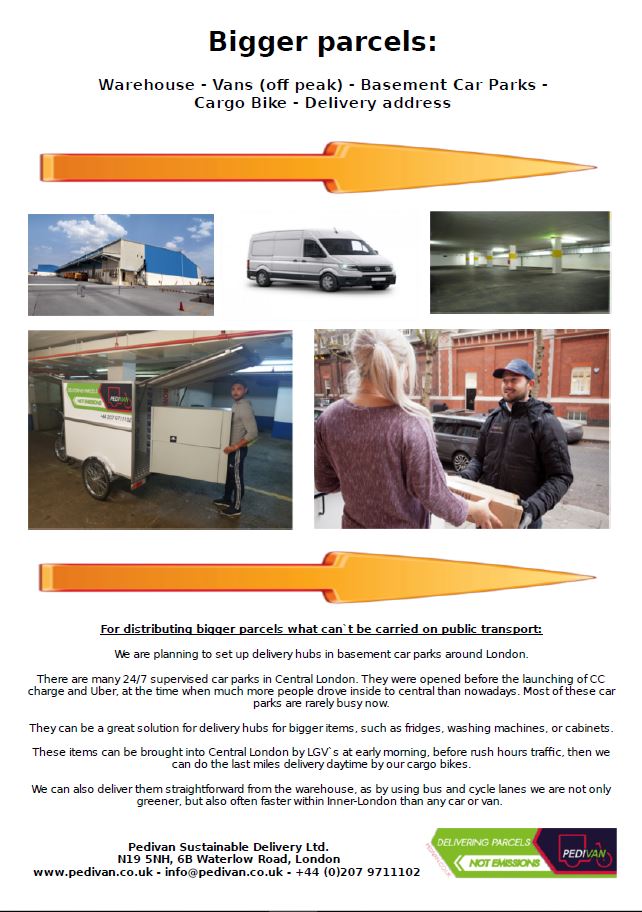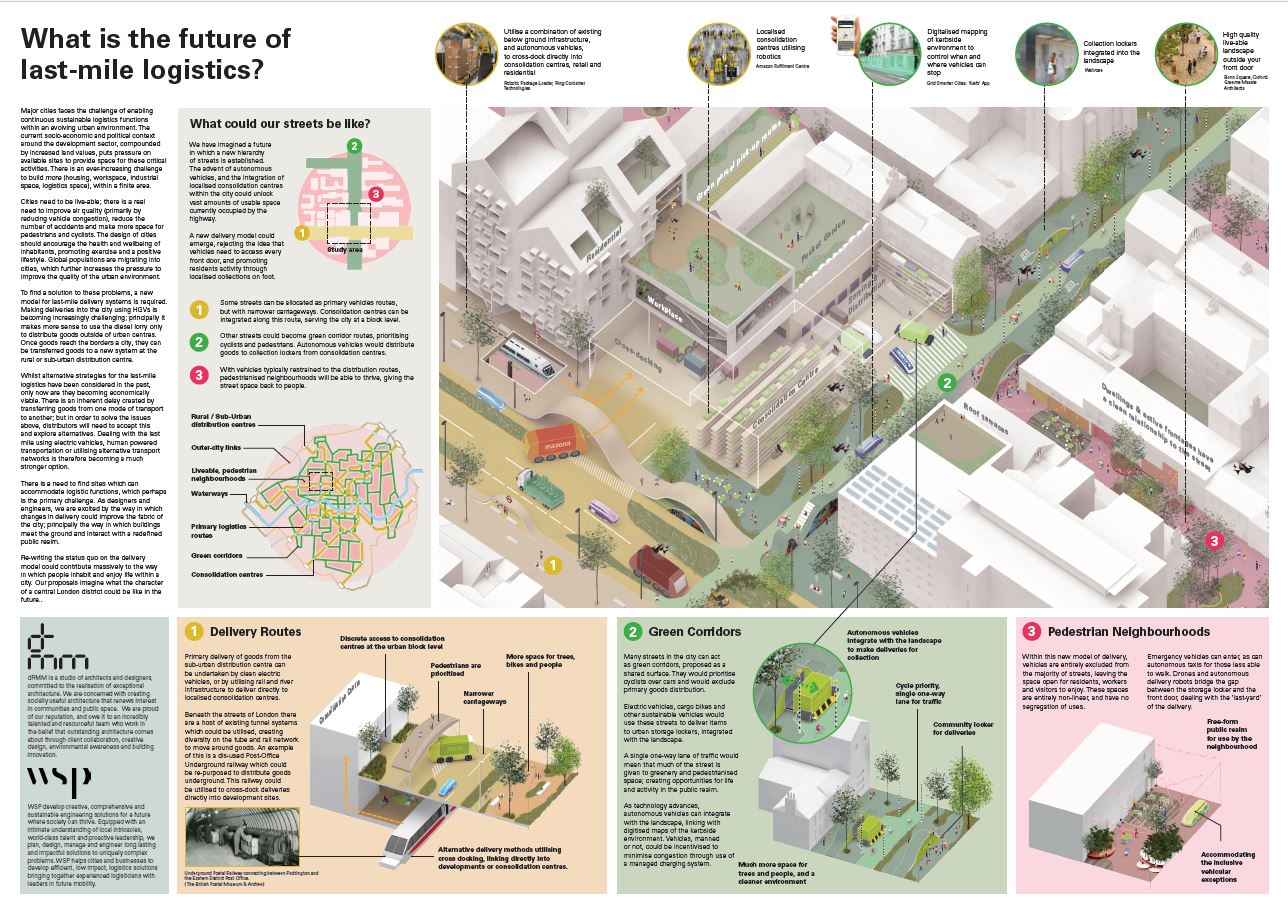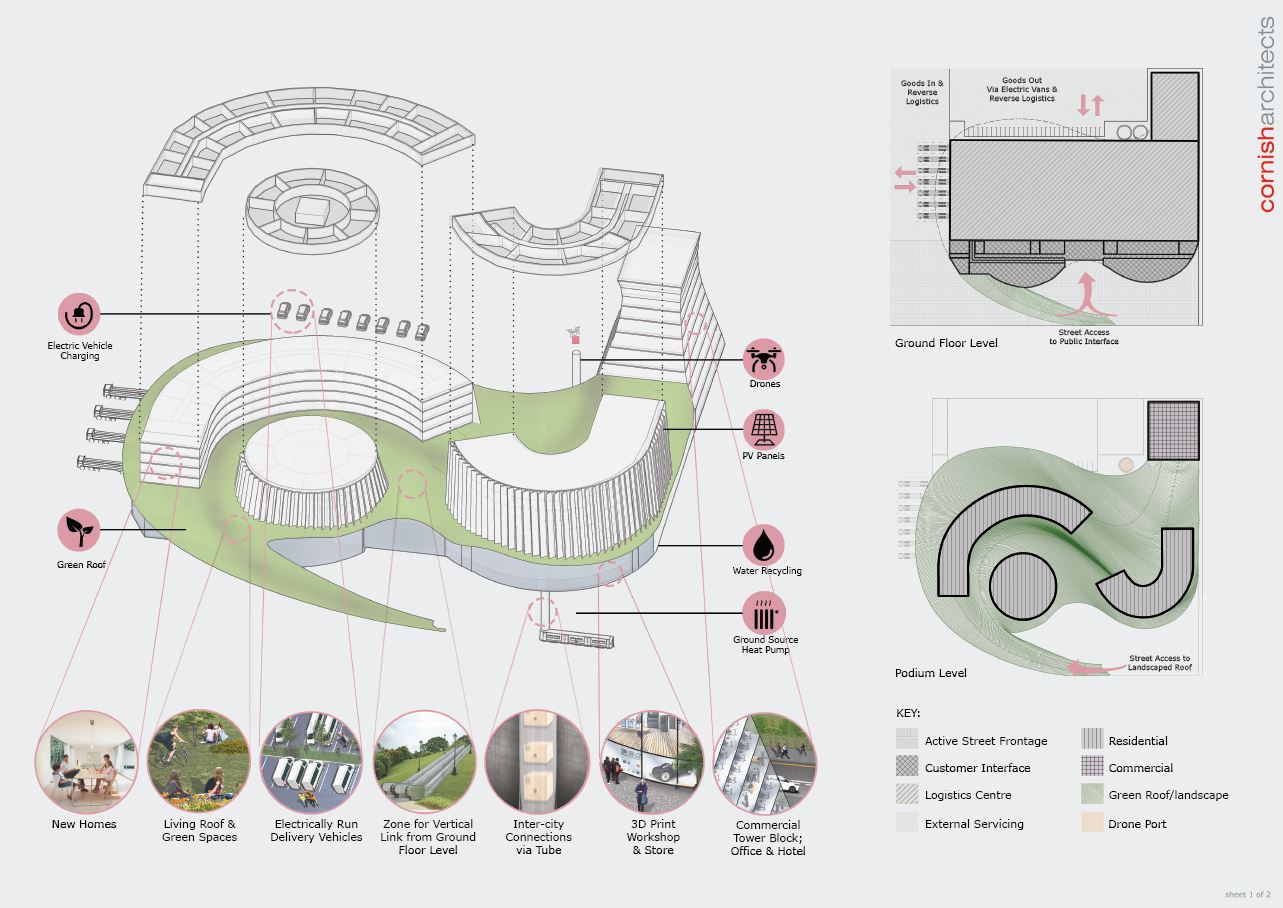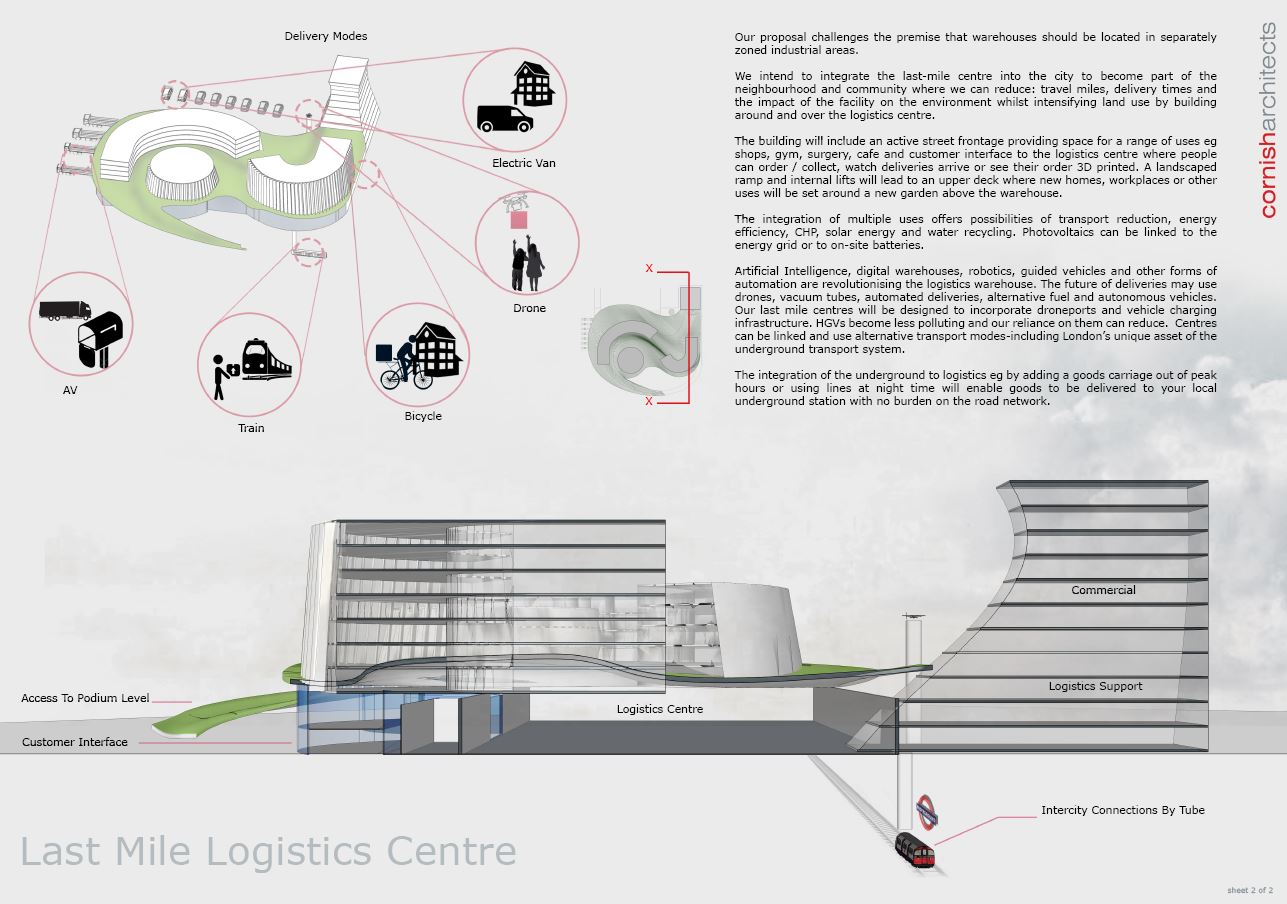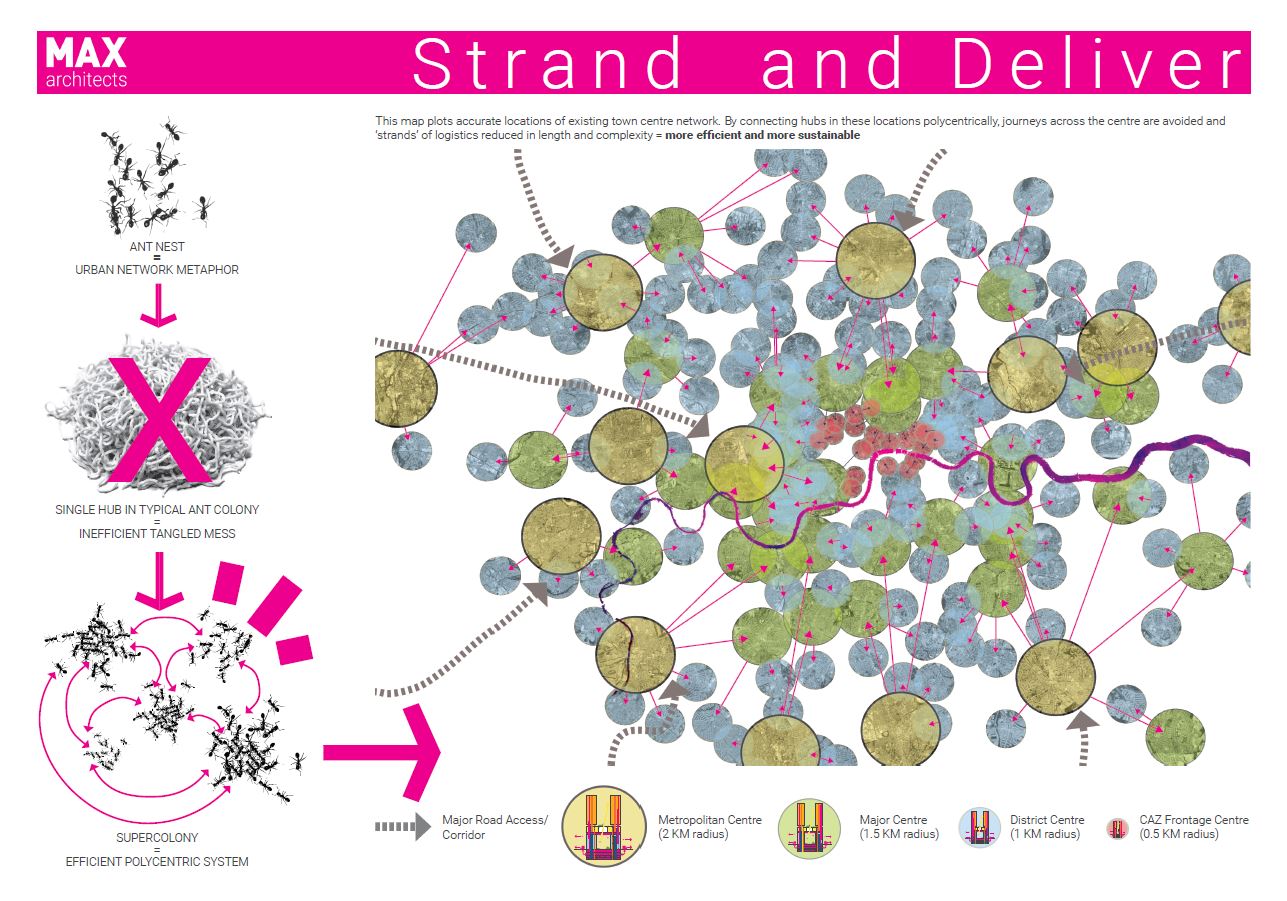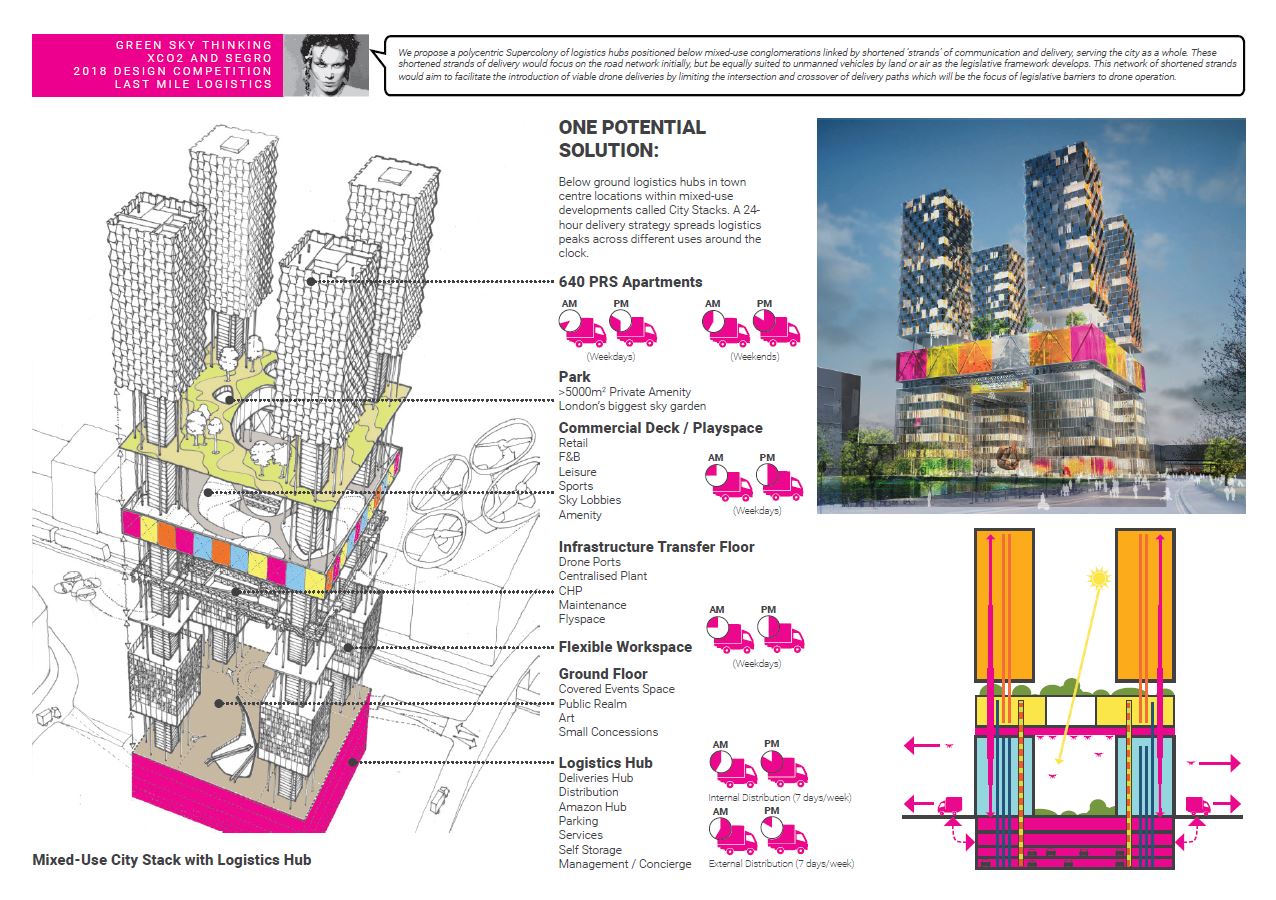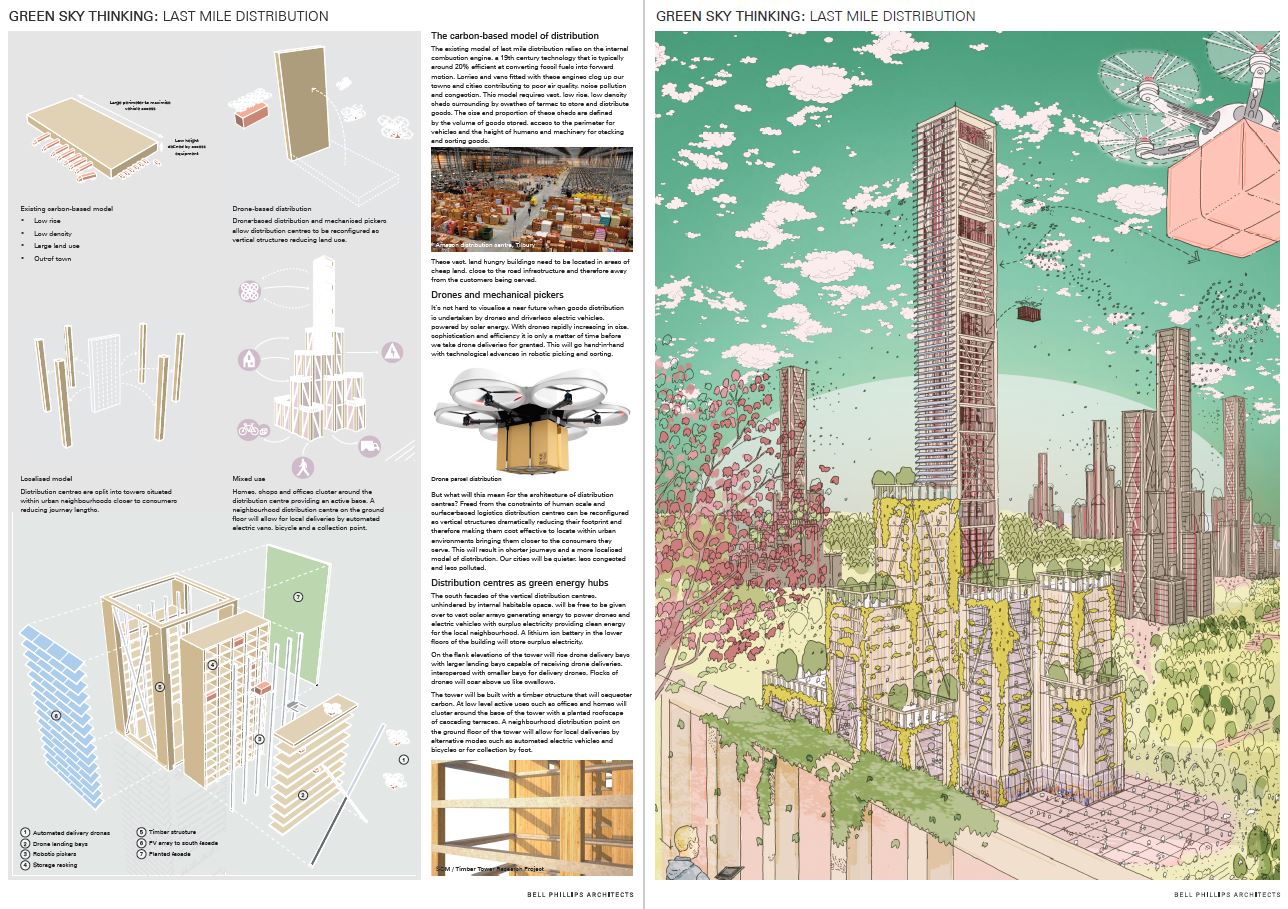London is a thriving city and as the capital grows, the demands placed on business to get their goods and services to their customers naturally increases. However, space is at a premium and balancing the demands for housing, green space and public realm often conflicts with the functional needs of a city.
With the growth of e-commerce, retailers and their delivery partners need to reconfigure their supply chain, and new residential and commercial development will increase the need for rapid delivery for the ‘last mile’ service. This only heightens the importance of siting commercial development ‘amongst’ or ‘near to’ urban concentrations of populations and businesses. The last mile service is important for increasing efficiencies in London’s supply chain, and it also has a key role in managing the number of vehicles on London’s roads and the air quality impacts associated with these.
For this year’s Green Sky Thinking event in collaboration with Segro, we asked entrants to consider the next generation of city-centre logistics with a focus upon the socio-economic value of the concepts developed to deliver functional spaces that offer employment and community for the people who live in them.
The evening saw a variety of interesting ideas but the judging panel of Holly Lewis (We Made That), Ben Brakes (Segro) and Tom Kordel (XCO2) had to pick a top three based on innovation, implementability and the extent to which they addressed this year’s Green Sky Thinking theme ‘People First’ and the challenges facing logistics buildings both now and in the future.
Winners:
1st prize: Bennetts Associates – ‘Last Mile Community’
2nd prize: Chetwoods – ‘E-Hive’
3rd prize: Pedivan
People’s prize – Bennetts Associates – ‘Last Mile Community’
Please do take a moment to have a look through the entries above, finally, we’d like to say a big thank you to all the competitors, judges, guests, Open City and everyone who helped make this an enjoyable and insightful evening of ideas and beers!


